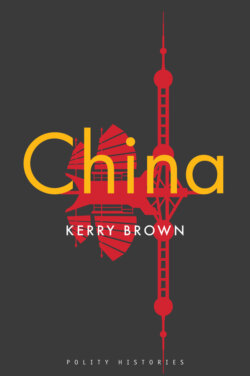Читать книгу China - Kerry Brown - Страница 16
Risen from the Ashes: China at War and After
ОглавлениеThe Second Sino-Japanese War (1937–45) was the most catastrophic moment in modern Chinese history. Japan’s expansionism under its leaders from the 1930s was one cause. Another was the deterioration of the global economy following the Wall Street Collapse of 1929. Japan’s noxious ideology of racial superiority towards neighbouring countries, particularly China, only added to the brewing conflict. From 1937, the two major countries of north-east Asia were pitched against each other in what was to be one of the most devastating wars in modern history. Before its attack on Pearl Harbor in 1941, Japan was in control of large swathes of coastal China, with a puppet regime doing its bidding installed both in the north-east in Manchuria, and in Shanghai. It had conducted penetrating campaigns in much of the countryside, encircling and destroying in a bid to annihilate any residue of opposition. The Nationalists fled to the south-western city of Chongqing, where, with US and British assistance, they mounted at least some opposition. Their main function, however, was simply to survive. The Communists, in their remote Yan’an revolutionary base in the central northern province known today as Shaanxi, did not have the capacity or the manpower to do much more than harass and survive by guile. But in a loose coalition with the Nationalists, and employing Mao’s guerrilla tactics, they proved surprisingly effective – at least as irritants to a Japan that was slowly and calamitously to discover that while it could control at least some of the cities, in the end the ‘sand-like’ quality of China in the countryside, where 90 per cent of people lived, proved too challenging. Stretched across the whole Asia Pacific, and now fighting against the might not just of the United States but also of Russia, Japan fell to defeat in 1945.
Mao may have been right when he said to the American reporter Edgar Snow in the 1960s that Communism would not have been ultimately successful in China without the searing experience of the Second World War.16 But the war also resulted in more committed and focused nationalism. China had survived – just. But it had experienced first-hand with terrifying consequences the meaning of being undeveloped, weak, and disunited against a foe that was none of these things. Japan’s advanced military, its strength and unity, were factors that caused China to suffer – and upon which after the war it was able to reflect. European colonial involvement with China had been destructive, but piecemeal. Britain never seriously attempted to subjugate the whole of the Chinese landmass. But in the Second Sino-Japanese War, 20 million perished and as many as 50 million were made homeless.
From 1949, the PRC vowed that never again would China be placed in this position of subjugation before an outside power, reinforcing the nationalism that had already been constructed. As Zheng Wang states in his study of the uses of historical memory in modern China,
It is no exaggeration to say that almost all the important changes, revolutions and reforms in [the country] after 1840 [and the first Opium War] are somehow related – if not a direct response – to the national humiliation during those subsequent hundred years. … It is impossible, therefore, to reimagine the recent history of China without the implications of the century of humiliation; it is an integral part of the Chinese Chosenness-Myths-Trauma complex.17
This reached its culmination in the war. It was the moment of most brutal and final exposure to the will and power of others. Even with the conclusion of the war, the country remained troubled. After years of uneasy truce with the Communists as they had tried, together, to beat the invaders, the Nationalists returned to the unfinished business of eliminating their rivals in a Civil War from 1946. Exhausted and demoralized, however, Chiang’s forces were defeated, fleeing to Taiwan, where they continued the Republic of China (which continues to exist to this day). The vision of Mao’s Communist nationalism had prevailed. It now had a world to rebuild.
